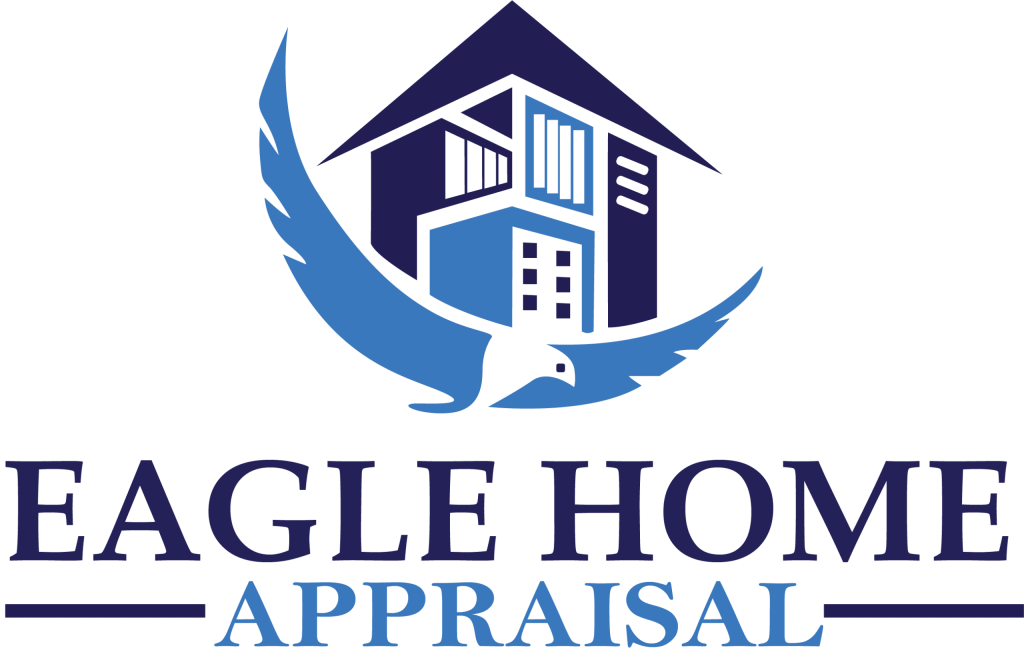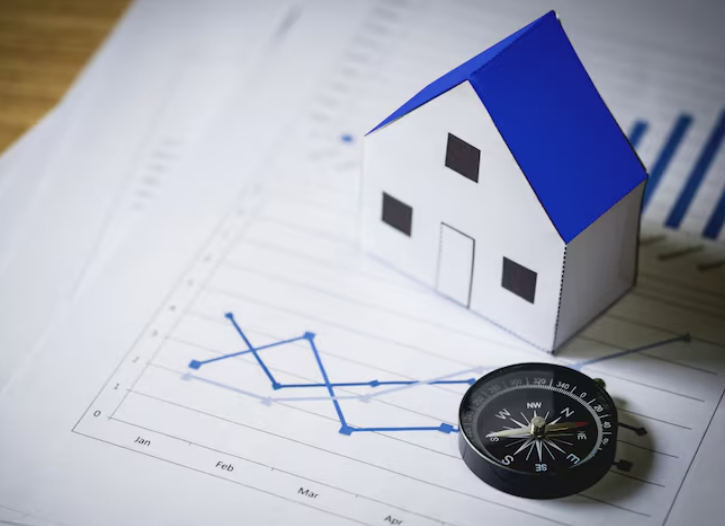How Do I Prepare My Gilbert Home For The Appraiser?
 Preparing for a home appraisal with a qualified real estate appraiser can be one of the most critical steps in achieving your real estate goals—whether you’re looking to refinance your mortgage, sell your property, settle an estate, or address a legal matter. In Gilbert, Arizona, the stakes are high because the housing market is dynamic, competitive, and shaped by seasonal trends, neighborhood developments, and property conditions.
Preparing for a home appraisal with a qualified real estate appraiser can be one of the most critical steps in achieving your real estate goals—whether you’re looking to refinance your mortgage, sell your property, settle an estate, or address a legal matter. In Gilbert, Arizona, the stakes are high because the housing market is dynamic, competitive, and shaped by seasonal trends, neighborhood developments, and property conditions.
A professional appraisal gives you more than just a price—it provides assurance for lenders, confidence for buyers, and facts for legal professionals. For you as the homeowner, a strong appraisal can make the difference between securing the best loan terms, listing your house competitively yet profitably, or simply feeling secure about your property’s true worth.
At Eagle Home Appraisal Gilbert, we believe preparation is key. While you cannot control the exact comps or fluctuating market forces, you can control your home’s presentation, maintenance, and documentation. A well-prepared property makes an appraiser’s job easier, ensures your home is fairly valued, and prevents important features from being overlooked.
This comprehensive guide is broken down into ten detailed sections, each packed with practical steps and insights. Use it as your strategic playbook for getting your home appraisal-ready in Gilbert, AZ.
Understanding the Appraisal Process
If the home appraisal process feels mysterious or intimidating, you’re not alone. Many homeowners experience stress simply because they don’t know what to expect. The good news is that transparency demystifies the process and empowers you to prepare methodically.
A licensed appraiser is an impartial professional who determines the current market value of your home. Their assessment—based on a snapshot of your property’s condition, recent sales in the area, upgrades, and objective standards—forms the basis for critical financial and legal decisions.
What Do Appraisers Actually Do?
- Exterior Inspection: The appraiser begins by evaluating the exterior. This includes looking at the foundation, siding, roof, windows, landscaping, driveway, fencing, and overall curb appeal. Any visible defects, upgrades, or signs of neglect can influence their report.
- Interior Evaluation: Every room is scrutinized for updates, cleanliness, damage, and overall maintenance. Appraisers consider floors, walls, ceilings, fixtures, appliances, HVAC, plumbing, and electrical systems. Functionality and aesthetics both matter.
- Measurements & Layout: Square footage is measured—sometimes even re-verified if prior numbers seem off. Efficient layouts often add value, while odd or wasted spaces might not.
- Photographic Evidence: Detailed photos are taken of rooms, features, and problem areas, all of which make their way into the permanent report.
- Researching Comparables (“Comps”): After your property walkthrough, the appraiser researches recently sold homes nearby—those of similar size, style, age, and amenities. The differences between your home and these comps guide their value calculation.
- Making Adjustments: If your home boasts extras (a pool, new kitchen, custom finishes) not found in comps, they’ll adjust the value upward. Conversely, known defects or outdated features can push it lower.
Why Is Thorough Preparation So Vital?
- First Impressions Last: Appraisers are trained to be impartial but are still human—how your home presents influences how they view its overall quality and care.
- Documentation is Key: Permits, warranties, and a clear record of upgrades give credibility to your claims.
- Spotlight Shows Value: A home with obvious upgrades, spotless presentation, and clear maintenance will almost always appraise higher than one that appears neglected or cluttered.
Ultimately, understanding the process isn’t just about reducing stress—it’s about stacking the deck in your favor. Approach the appraisal with professionalism, transparency, and a plan, and you’ll ensure your home’s value is accurately reflected.
Curb Appeal: Your First Impression Matters
The moment an appraiser pulls up in front of your home, their initial impression is formed often before they even step inside. Curb appeal isn’t just an aesthetic bonus; it’s the opening statement about the home’s maintenance, pride of ownership, and attention to detail. In a real estate appraisal in Gilbert, where tree-lined streets and manicured lawns are common, neglecting this factor can be costly.
Steps to Boost Curb Appeal:
- Landscape Maintenance: Mow the lawn, trim hedges and trees, weed flowerbeds, and replace any dead plants. Invest in fresh mulch and add seasonal flowers for a pop of color near the entrance.
- Pressure Wash & Clean: Power-wash sidewalks, driveways, brickwork, fences, and the exterior to remove grime and cobwebs. Clean or re-paint the front door for instant freshness.
- Repair Visible Damage: Fix cracked concrete on walkways, steps, or patios. Repair loose bricks, damaged fencing, or sagging gutters. Address peeling paint or dented siding without delay.
- Enhance Entry Points: Ensure house numbers are attractive and easy to read. Upgrade light fixtures, mailbox, and door hardware if they look worn or outdated.
- Stage Outdoor Living Areas: Clean patios, porches, or decks and add inviting furniture or decor. Even a simple bench with cushions or a few potted plants can signal warmth and care.
- Clear Debris: Remove leaves, branches, and refuse from yards, roof, and gutters. Keep trash bins, hoses, bikes, and tools out of sight.
Why Is This So Important?
Appraisers use external appearance as a gauge for internal care. A home with overgrown lawns, peeling paint, or neglected entryways suggests deferred maintenance, which may impact the appraiser’s assessment of the property and its eventual value.
Pro Tips:
- Seasonal Considerations: If your appraisal falls in spring or summer, spruce up with new blooms. In winter, ensure walkways are clear and lighting is adequate.
- Small Investments, Big Returns: Spending under $200 on landscaping, paint, and cleaning often boosts valuation more than costly renovations with little curb impact.
By investing a little time and effort in curb appeal, you set the stage for a positive evaluation—and likely a better outcome. Your home’s exterior is the handshake that greets the appraiser; make it count.
Cleaning and Decluttering: Show Off Space and Care
Cleanliness and organization can transform how an appraiser experiences your home. Appraisers need a clear view of your property’s spaces, features, and finishes—and clutter or dirt interferes with their ability to do so.
Deep-Clean Every Room
- Kitchens & Bathrooms: Scrub counters, sinks, faucets, appliances, and floors. Remove stains from tile, grout, and caulk. Smells of mold, pets, or food can be off-putting.
- Floors & Carpets: Mop hardwood or tile, shampoo carpets, and vacuum thoroughly. Steam clean if there are persistent odors or stains.
- Windows & Mirrors: Sparkling glass lets in light and highlights spaciousness. Clean inside and out, and repair torn screens.
Decluttering for Maximum Impact
- Remove Non-Essential Items: Stash away excess furniture, toys, electronics, and personal memorabilia. Hide laundry, mail stacks, and crowded countertops.
- Organize Storage Areas: Tidy closets, pantries, and cabinets to emphasize storage capacity. Arrange garages and sheds so they look accessible, not packed.
- Minimize Decor: Depersonalize by removing family photos, edgy artwork, and strong personal statements. Neutral spaces help appraisers (and prospective buyers) focus on the home itself.
Why It Matters
Clutter can make rooms seem smaller and less functional. Dirt or neglect signals deferred maintenance and can lower the perceived value. In contrast, clean and open spaces allow features and upgrades to stand out—and ensure the appraiser isn’t distracted by mess.
Bonus Tips:
- Natural Light: Open curtains and blinds to bathe rooms in sunlight.
- Odors: Eliminate pet, smoke, and cooking odors. Use air purifiers or bake cookies before the appraisal for a pleasant scent.
- Finish Work Early: Clean thoroughly at least a day before so you’re not stressed or fatigued when the appraiser arrives.
Simple steps like deep cleaning, organizing, and decluttering are among the most cost-effective ways to prepare your Gilbert home for an appraisal—boosting not only appeal but potential value.
Repairs: Address Both Big and Small Issues
Minor issues send major signals to an appraiser. A home with visible repairs left undone can be labeled as “lightly maintained” or even “in need of work,” which can quickly drag your value below similar updated properties.
Start With a Homeowner’s Mini-Inspection
- Plumbing & Electrical: Fix leaky faucets, running toilets, and replace burnt-out bulbs. Make sure outlets, switches, and fans work.
- Walls & Ceilings: Patch cracks and holes, repaint stained or damaged areas, and address any signs of water damage immediately.
- Windows & Doors: Repair broken locks, torn screens, or sticking windows. Replace cracked glass and ensure all windows open and close smoothly.
- Floors: Replace missing tiles, refinish worn hardwood, and fix loose carpet tacks.
- Safety Devices: Check smoke detectors, carbon monoxide alarms, and fire extinguishers.
- HVAC Systems: Service your AC and heating units. Change filters and clean vents.
Exterior Repairs
- Roof & Gutters: Check for missing shingles, leaks, or sagging sections. Clean gutters and downspouts for proper drainage.
- Fencing & Gates: Repair broken slats, posts, and latches. Ensure everything is secure and functional.
Why Bother With Small Issues?
Appraisers often note cumulative repairs as “deferred maintenance,” which can lower your home’s rating and value. If serious repairs are needed (like roof replacement or HVAC upgrades), get professional estimates—these can help the appraiser understand the potential impact on value.
Timing Is Everything
Schedule repairs a week or more before your appraisal, allowing time for cleanup and inspection. Even a handyman’s afternoon tackling lingering issues can return much more in your final valuation.
Document Everything
Keep receipts, invoices, and contractor estimates in your appraisal file. These serve as proof of upgrades and maintenance, adding credibility and value to your home’s report.
Every fix—no matter how minor—shows care and pride of ownership. Thorough repairs elevate your home above “average” comps and ensure a fair and positive appraisal.
Interior Presentation: Let Every Room Shine
Staging isn’t just for professional photographers or home buyers—it’s equally influential on appraisers. Presenting each room according to its best use, emphasizing flow, light, and style, can dramatically improve an appraiser’s perception.
Staging Best Practices
- Furniture Placement: Arrange furniture to showcase each room’s purpose and maximize walkable space. Remove bulky or outdated pieces.
- Lighting Matters: Before the appraisal, replace burnt bulbs and add lamps where needed. Use natural light by opening blinds and curtains.
- Colors and Textures: Fresh paint in neutral tones appeals to the widest audience. Update soft furnishings like pillows, curtains, and throws.
- Clean Surfaces: Kitchen counters, bathroom vanities, and tabletops should be free of clutter. A single bowl of fruit or small plant is enough.
- Accessories: Use minimal, cohesive decor to emphasize lifestyle—not personal taste.
Special Attention Areas
- Entryway: Welcome the appraiser with an organized foyer, a rug, and maybe a mirror or artwork.
- Bathrooms: Use new towels, soap dispensers, and spotless shower curtains. Store personal hygiene items out of sight.
- Master Bedroom: Present it as a restful retreat; make the bed with fresh linens, clear bedside tables, and accent with matching lamps.
- Living Areas: Emphasize space and comfort. Rearrange sofas, chairs, and entertainment centers to create flow and highlight focal points like a fireplace or large window.
Focus on Functionality
Showcase versatile spaces: a guest bedroom set up as a home office, or a finished basement staged as a game room. Demonstrate possibilities—this helps appraisers adjust value for bonus rooms and converted spaces.
Maximizing Each Room
- Dining Room: Set the table attractively, but simply.
- Kitchen: Remove magnets and paperwork from the fridge, hide rarely used appliances, and clean out the pantry.
- Garages and Utility Rooms: Organize into clear workspaces, not dumping grounds.
Interior presentation requires strategy and effort. A well-staged home not only looks better—it feels bigger, newer, and ultimately more valuable to the appraiser.
Highlighting Upgrades and Unique Features
Appraisers are trained to spot upgrades, but they won’t necessarily notice every enhancement—especially those “behind the scenes.” That’s where proactive documentation pays off.
List Every Significant Upgrade
- Renovations: Document dates, contractors, and costs for new kitchens, bathrooms, flooring, or layout changes.
- Major Systems: Note installations or replacements for HVAC, water heaters, solar panels, and roof. Attach permits and warranty info.
- Smart Home Tech: From thermostats and security cameras to wiring for fiber optics—list each addition with manufacturer details.
- Outdoor Improvements: Pools, spas, built-in grills, fire pits, decks, and landscape redesigns deserve their own section.
Provide Proof
Create a fact sheet with photos, receipts, city permits, and warranty documentation. Highlight energy-efficient appliances and certificates, as these can influence value in eco-conscious markets like Gilbert.
Spotlight Features During the Appraisal
Point out custom closets, upgraded insulation, noise-reducing windows, or imported finishes. Appraisers will take additional notes and may adjust their comps accordingly.
Why Document Everything?
Paperwork isn’t just bureaucracy—it’s validation. Many lenders and buyers base their decisions on the tangible value of upgrades, not just the appearance.
What If You’ve DIY-ed?
Be honest about unpermitted work or DIY improvements. While some may add value, lack of permits can lead to deductions. Whenever possible, obtain retroactive permits before your appraisal.
Highlighting upgrades is your chance to ensure every dollar you’ve invested is accounted for. Comprehensive documentation is non-negotiable—treat it like an investment in equity.
Compiling Essential Documentation
Documentation is the backbone of a credible, streamlined appraisal. Prepared paperwork not only builds trust but also expedites the process and can influence the final valuation.
The Must-Have Documents List
- Deed and Ownership Papers: Proof of legal ownership.
- Tax Records: Latest property tax statement and any recent assessments.
- Improvement Receipts: Invoices, contracts, and receipts for upgrades or repairs.
- Permits: Documentation for renovations, additions, or major system replacements.
- Warranties: Details for appliances, HVAC, roofing, and major equipment.
- HOA Information: If your home is governed by a homeowners’ association, include rules, dues, recent upgrades, or assessments.
- Blueprints/Floor Plans: Helpful, especially if you’ve made layout changes.
- Insurance Papers: Proof of homeowner’s insurance and any claims related to damages.
- Photos: Before-and-after shots of renovations or landscaping enhancements.
- Prior Appraisals: If you have previous reports (within 3 years), include them for reference.
How to Present Your Packet
- Organize everything in a neat folder or binder. Consider digital copies on a USB stick or cloud folder.
- Label each section clearly. Use tabs for receipts, permits, upgrades, etc.
- On the appraisal day, hand the packet to the appraiser. Let them review it at their pace.
Why Documentation Makes a Difference
Appraisers appreciate organized, easy-to-access info. It allows them to verify claims efficiently, compare improvements to area comps, and reduce the risk of undervaluing significant features.
Remember, the less work the appraiser has verifying facts, the more likely they are to capture all your home’s positives in the official report.
Market Awareness: Knowing Your Neighborhood and Comps
The value of your home isn’t just shaped by its condition or features—local market trends and neighborhood comps strongly influence final numbers.
Researching Comparables
- Recent Sales: Look up homes sold in the last 6–12 months within your area or subdivision. Focus on those of similar size, style, and age.
- Current Listings: While not weighted as heavily as sold comps, active listings indicate pricing trends.
- Pending Sales: If possible, gather info on homes under contract—especially if the neighborhood is experiencing rapid appreciation.
Neighborhood Factors
Appraisers adjust for location-based perks such as:
- School quality, nearby parks, and recreational amenities.
- Low crime rates, quiet streets, and proximity to shopping.
- HOA-managed amenities (pools, clubhouses) or community traditions.
How to Use This Information
- Compile a brief list (with printouts or screenshots) of 3–5 favorable comps.
- Highlight features your home offers that others lack—upgrades, lot size, views, or premium placement within the subdivision.
Why It Matters
Being familiar with neighborhood trends lets you anticipate the appraiser’s choices and address questions knowledgeably. If you believe your property deserves a higher valuation based on unique characteristics, having comps and market data ready empowers you to make your case.
Market research isn’t just for sellers—it boosts every homeowner’s confidence that the appraisal will be fair and reflective of true local value.
Pet and Family Considerations During the Appraisal
Appraisal day should be calm, organized, and disruption-free so the professional can focus on their job and see your home at its best.
Managing Pets
- Remove Distractions: Keep pets crated, behind closed doors, or offsite. The appraiser may need access to all rooms, garages, and backyards—help them do so quickly and safely.
- Minimize Messes: Clean up pet hair, litter boxes, food bowls, and toys. Remove pet stains or odors before the visit.
Family Logistics
- Inform Household Members: Let everyone know the date and expected timeframe.
- Schedule Quiet Time: Ideally, arrange for children and other adults to be out or occupied during the appointment.
- Avoid Work Crews: Don’t schedule cleaning, repair, or landscaping during the appraisal window.
How to Interact
- Welcome the appraiser, offer your documentation packet, and be available for questions.
- Don’t follow or “shadow” the appraiser. Allow them space and privacy—they’re trained to work independently and need to assess without influence.
Why Does This Matter?
Distractions disrupt the flow of the appraisal and can cause features or upgrades to be overlooked. A serene, comfortable environment enables the appraiser to do their best work—and reflects well on your stewardship of the property.
Small gestures—like offering a bottle of water, answering questions promptly, and respecting their time—can also make a subtle, positive impression.
Timing and Seasonal Factors: Strategize for Maximum Impact
Scheduling your appraisal isn’t always within your control, but where possible, timing can influence results. The Gilbert housing market is shaped by seasonal patterns, competition, and consumer behavior.
When to Schedule
Spring/Early Summer: Typically, this is the hottest season for home sales, so comps are likely more favorable. Well-maintained landscaping also presents best.
Late Summer/Fall: Market activity tapers, but homes still sell briskly. Comps may reflect slightly lower values, so ensure seasonal maintenance is up-to-date.
Winter: Fewer sales and less activity in the market can lead to a lack of strong comps, especially if landscaping or exterior features aren’t at their best. However, interior upgrades (HVAC, insulation) stand out more.
Consider Local Events
In Gilbert, new community developments, school calendar changes, or municipal projects (like road work) can influence appraiser perceptions—research what’s happening nearby.
Plan Your Home’s “Showtime”
- Time major upgrades or repairs so they’re finished before appraisal.
- Stage seasonal decor to reflect a warm, inviting home.
- Schedule landscaping so everything is fresh for exterior review.
Consult Appraisals Experts
Reach out to Eagle Home Appraisal Gilbert for advice on timing that maximizes value—our knowledge of Gilbert’s trends equips you to schedule strategically.
Seasonal timing isn’t everything, but with proper planning, it can give your home a competitive edge.
Conclusion
Preparing your Gilbert home for an appraisal is a strategic and multi-layered process—one that can directly impact your financial future. By following the steps in this guide, you position yourself for the best possible outcome.
Key Takeaways:
- Preparation Pays Off: Cleanliness, maintenance, and strong curb appeal set a positive tone for the appraiser.
- Document Everything: Records of upgrades, repairs, and essential paperwork support your valuation claim.
- Know the Market: Awareness of local trends and comps guides expectations and strengthens your case.
- Timing Matters: Choose the most advantageous season, complete renovations in advance, and consult professionals for the latest insights.
- Minimize Distractions: Pet and family management allows the appraiser to perform a thorough evaluation.
At Eagle Home Appraisal Gilbert, we’re committed to helping homeowners approach the appraisal process with confidence and clarity. Our experience in the Gilbert market ensures that every home is assessed fairly and every client is fully supported.
Whether you’re selling, refinancing, or resolving estate matters, preparation transforms your home appraisal from stressful to successful. Reach out for expert guidance, and let us help you get the value you deserve.
For comprehensive home appraisal services and preparation tips tailored to your specific situation, contact Eagle Home Appraisal Gilbert. With the right preparation, you’ll open the door to real estate success in Gilbert, AZ.
Next Up: In our next post, we’ll explore What Factors Influence Appraisal Value in Gilbert, AZ Neighborhoods? and how understanding these factors can help you better prepare for a fair and accurate home valuation.
Divorce Appraisals
At Eagle Home Appraisal Gilbert, we specialize in providing expert divorce appraiser services, offering expert witness testimony when necessary.
Estate & Trust Appraisals
At Eagle Home Appraisal Gilbert, we offer a comprehensive range of professional estate appraisal services to facilitate estate and trust planning.
IRS & Tax Appraisals
At Eagle Home Appraisal Gilbert, we specialize in providing professional IRS tax appraisal services to minimize capital gains on inherited property.
Real Estate Appraisal
Eagle Home Appraisal is a group of independent fee appraisers committed to delivering competent, credible, and reliable appraisal reports.
Eagle Home Appraisal Services Near Me
Comprehensive Property Appraisals
Expert Witness Testimony
Fair Market Value Assessments
Rapid Turnaround Times
Customized Solutions
Contact Eagle Home Appraisal Today
For more information about our services, get in touch with Eagle Home Appraisal. Our team is dedicated to providing the best customer service, ensuring all your appraisal needs are met with professionalism and expertise. Contact us today to learn more about how we can assist you.
Get A Free Consultation

copyright @2025 all rights reserved | Privacy-policy





